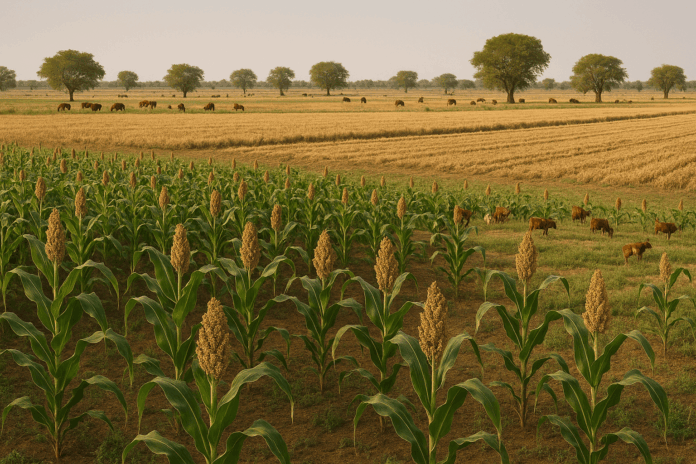Sudan is one of the richest countries in the world in terms of agricultural resources, boasting fertile lands, abundant water, and a diverse climate that allows for year-round cultivation. Despite these vast capabilities, Sudan remains widely recognized as a food-importing nation, raising questions about the disparity between its potential and its current reality.
Vast Agricultural Resources
Sudan has over 200 million feddans of arable land, yet only around 30% is currently cultivated, leaving enormous room for future agricultural investment. The country is traversed by the Nile River and its tributaries, along with reservoirs and groundwater reserves that provide strategic irrigation potential for large areas.
Sudan’s diverse environmental and climatic zones support the cultivation of key crops such as wheat, sorghum, sesame, peanuts, cotton, vegetables, and fruits. The country also produces approximately 80% of the world’s gum arabic, reinforcing its role in global supply chains.
Promising Livestock Wealth
In addition to agriculture, Sudan is home to one of Africa’s largest livestock populations, with over 100 million head of cattle, camels, sheep, and goats. This wealth serves as a crucial source of animal protein and export revenue to regional and international markets.
Complex Challenges
Despite its rich resources, Sudan’s agricultural sector faces numerous challenges, including weak infrastructure, limited modern investment, and a decline in agricultural extension services. Local conflicts and political instability further hinder the development of the sector and its potential as a primary driver of economic growth.
Issues related to transportation, storage, and supply chain inefficiencies lead to significant post-harvest losses. Meanwhile, portions of agricultural and livestock production are sometimes smuggled, depriving the national economy of valuable returns.
Future Potential
Economic and agricultural experts believe that with proper utilization of its natural and human resources, Sudan can truly become the world’s food basket. This would require comprehensive agricultural policies, encouragement of both local and foreign investments, infrastructure development, and smart partnerships with international financial institutions.
Conclusion
Sudan possesses all the key elements to become a central player in ensuring regional and global food security. While resources mark the starting point, strategic vision and sound management will be the driving forces that transform this aspiration into a tangible reality for the Sudanese people and the wider world.




